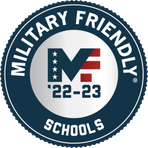The program objective for the EFI Calibration program is to prepare the student for entry into the tuning industry, to be capable of calibrating and troubleshooting the Engine Management System on the engine dynamometer, chassis dynamometer and at the race track. This program includes instruction in adding performance accessories, modifying power trains, tuning custom engines, suspension, exhaust systems, and using dynamometers and other diagnostic equipment.
This program is intended for mechanically inclined students with a solid background in the mechanical system of an automotive engine and desire to extend that knowledge into the electronic control system in the automotive industry.
The program will include both classroom and hands-on lab instruction. The School of Automotive Machinists & Technology measures student progress in semester credit hours. One semester credit hour for each fifteen (15) hours of classroom contact plus appropriate outside preparation or the equivalent; or one semester credit hour for each thirty (30) hours of laboratory work plus appropriate outside preparation. This program has an outside work requirement for completion. Please see the course description for additional information.
The primary emphasis of this program will be on both the science and the analytical method used to extract the maximum performance out of an engine safely. The student will learn and explore how to utilize various engine control software and dynamometers to alter engine operating parameters while observing the physical changes in real time. Special tuning topics such as High Performance Naturally Aspirated, Turbo Charged, Supercharged, Nitrous, Launch Control, and Traction Control will be covered in detail.
The student will learn to analyze and evaluate completed projects to quantify improvements, using racing industry standard equipment and techniques. Graduates will benefit from improved opportunities for employment in all forms of the motorsports industry. Single subjects making up this program are not offered individually. See the Equipment List Addendum for a complete list of machines used in the EFI Calibration program.
The student will gain working knowledge of the different types of EFI systems, software and other tools used to assist in engine vehicle tuning. Students will learn practices that will in uence safety for themselves and others due to the nature of the potentially hazardous environment. Outside-the-classroom work is required. This course includes an average of 7.5 hours of outside-the-classroom work.
The student will learn how to differentiate between the various types of systems and how they differ in tuning strategies. They also learn what is involved in fuel and ignition tuning, open and closed loop tuning and functions of PID controllers as well as possible secondary systems that may be controlled by the computer. Combustion chemistry, emission control, and fuel difference is also covered. Outside-the-classroom work is required. This course includes an average of 15 hours of outside-the- classroom work. Prerequisite 501
This course explains the different types of sensors that are used to provide feedback to the computer accompanied by how they work. Students will learn what sensors are appropriate to use in speci c applications. They will also learn how to diagnosis possible issues. Outside-the-classroom work is required. This course includes an average of 22.5 hours of outside- the-classroom work. Prerequisite 501 – 502
Students will learn to set-up an engine/vehicle on the engine and chassis dynamometer. They will learn the safety requirements to operate these dynamometers and understand how the function of each. Student will practice tuning on the engine and chassis dynamometer. Outside-the- classroom work is required. This course includes an average of 18.75 hours of outside-the-classroom work. Prerequisite 501 – 503
Students will learn strategies of tuning factory computer systems using HPtuners. They will learn to improve OEM mapping for better drivability tuning along with transmission tuning and engine diagnostics. Outside- the-classroom work is required. This course includes an average of 22.5 hours of outside-the-classroom work. Prerequisite 501 – 504
Students will learn how to install aftermarket engine management systems. They will also learn how to diagnose issues and make modi cations. Outside-the-classroom work is required. This course includes an average of 18.75 hours of outside-the-classroom work. Prerequisite 501 – 505
Students learn about the effects that changing track and weather conditions will have on a tune and how making adjustments will best suite the current conditions based on driver feedback, ET/mph and data logs. Outside-the- classroom work is required. This course includes an average of 22.5 hours of outside-the-classroom work. Prerequisite 501 – 506




